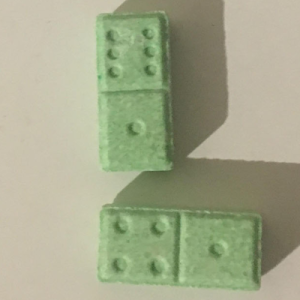Incienso Líquido Fresco Bizarro en Spray
DESCRIPCIÓN
Comprar Incienso Líquido Fresco Bizarro en Spray
“Incienso Líquido Fresco Bizarro en SprayForma parte de una creciente familia de productos sintéticos que se comercializan engañosamente como incienso de hierbas, espray de aromaterapia o popurrí. En realidad, muchos de estos productos contienen cannabinoides sintéticos, compuestos potentes que imitan al THC, pero conllevan riesgos significativamente mayores, como convulsiones, alucinaciones y la muerte. Lo que hace que su venta en línea sea éticamente problemática no es solo su naturaleza no regulada, sino también la estrategia deliberada de engaño al consumidor, evasión de plataformas y peligro público.
El mercado gris digital
Descripción general de vendedores en línea, foros y reseñas de usuarios
A primera vista, los sitios que ofrecen "Incienso Líquido en Aerosol Bizarro Fresh" parecen ser minoristas especializados en productos aromáticos. Sin embargo, en los foros de usuarios, es evidente que muchos consumidores compran el producto para... smoke or vaporize Con la esperanza de un subidón similar al del cannabis. Las reseñas de usuarios analizan los efectos de la dosis, las estrategias de mezcla e incluso advierten sobre hospitalizaciones, lo que pone de manifiesto la peligrosa normalización de las conductas de alto riesgo.
El papel de las criptomonedas y el anonimato
Los vendedores a menudo solo aceptan pagos con criptomonedas, alegando privacidad o "envíos discretos" como argumentos de venta. Combinado con la navegación anónima a través de Tor, este sistema permite a vendedores y compradores evadir la vigilancia mientras continúan ofreciendo productos potencialmente letales. Estas tecnologías, si bien son útiles para el derecho a la privacidad, se han explotado para sostener un tráfico de drogas semiclandestino que opera tanto en plataformas de la web clara como de la oscura.
Autonomía vs. Daño
¿Deberían las personas tener acceso a sustancias no reguladas?
Algunos argumentan que los adultos deberían tener derecho a acceder a cualquier sustancia que no esté explícitamente prohibida. Sin embargo, en el caso de Bizarro y productos similares, los usuarios a menudo se exponen, sin saberlo, a sustancias químicas peligrosas mal etiquetadas o que no figuran en el envase. Esto socava la verdadera autonomía, ya que el consentimiento informado es casi imposible en estas transacciones.
El equilibrio entre la libertad y la salud pública
Desde una perspectiva de salud pública, el problema no radica solo en el consumo individual, sino en la distribución generalizada de productos tóxicos y engañosos. Salas de urgencias de EE. UU., el Reino Unido y la UE han reportado casos de intoxicación relacionados con cannabinoides sintéticos, a menudo relacionados con aerosoles de "incienso" vendidos en línea. En estos casos, la regulación no sirve para restringir la libertad, sino para proteger la vida.
Responsabilidad de la plataforma
¿Son los mercados responsables de lo que se vende?
Muchas plataformas que albergan estos productos se esconden tras avisos legales: «no apto para consumo humano», «alternativa legal a las drogas», etc. Sin embargo, cuando se entiende claramente la intención de uso, estos avisos se convierten en un teatro legal. El comercio ético exige responsabilidad por los resultados previsibles, especialmente cuando la intención del usuario y los efectos del producto son de dominio público.
Case Studies of Shutdowns (e.g., Bizarro Fresh Liquid Incense Spray)
En 2015, las autoridades estadounidenses vincularon una serie de sobredosis con productos cannabinoides sintéticos, incluyendo variantes de Bizarro. Estos sucesos provocaron redadas, incautaciones y el cierre temporal de varias tiendas en línea. Sin embargo, al igual que con otros productos sintéticos, surgen nuevos vendedores con marcas diferentes, a menudo utilizando análogos químicos casi idénticos para eludir las prohibiciones actualizadas.
Soluciones políticas y éticas
Regulación ética en la era del comercio descentralizado
In plaats van alleen op een verbod te vertrouwen, zouden beleidsmakers zich moeten richten op:
- Rapida programmazione analogica dei farmaci sintetici
- Collaborazione con piattaforme digitali per segnalare i venditori ingannevoli
- Accordi di regolamentazione transfrontalieri per affrontare il traffico di sostanze chimiche
Monitoreo digital sin exceso de vigilancia
Ethical tech can support monitoring without infringing on privacy. This includes:
- AI models trained to detect deceptive marketing of synthetic products
- Privacy-preserving blockchain analysis
- Incentivizing platforms to self-regulate based on public health flags
Conclusión
La venta de incienso líquido en aerosol Bizarro Fresh en línea es más que un mercado marginal: es un caso de prueba para la intersección del anonimato digital, el engaño al consumidor y las políticas sobre drogas sintéticas. Los reguladores, las plataformas y los usuarios deben reconocer colectivamente los riesgos que representan los productos que se hacen pasar por incienso legal mientras ofrecen resultados ilegales, a menudo letales. A medida que avanzamos hacia una era de comercio cada vez más descentralizado, los marcos éticos deben evolucionar para proteger la salud, la verdad y la seguridad en los mercados digitales.







